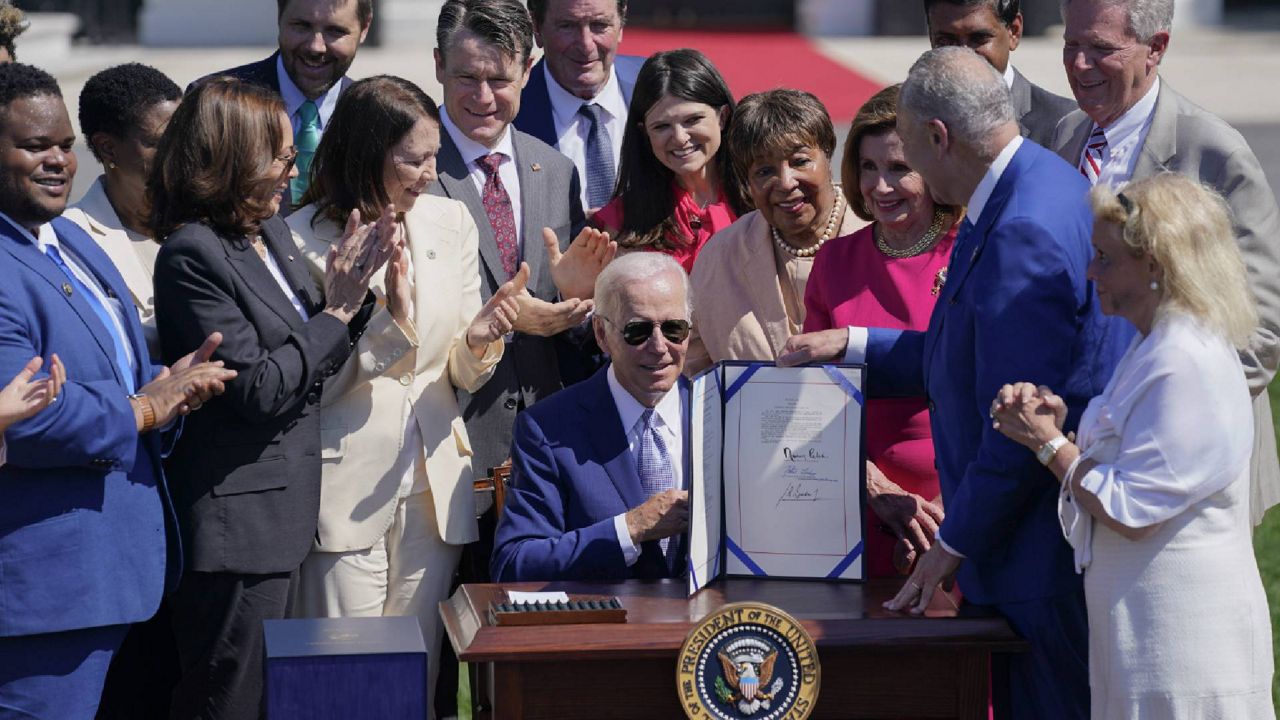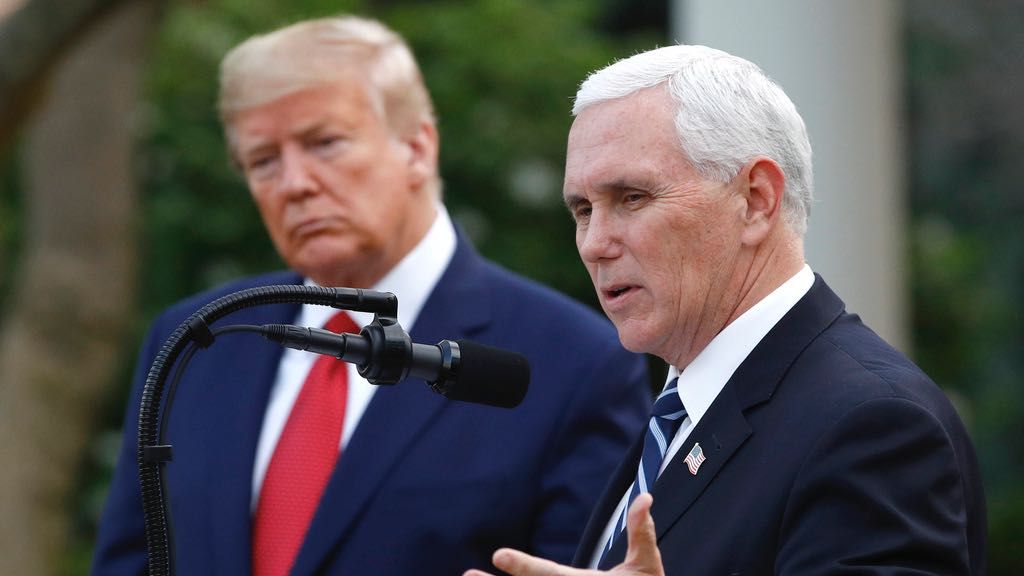President Joe Biden on Tuesday signed into law a $280 billion bill aimed at boosting domestic semiconductor production and funding science and technology research, a measure that the White House and lawmakers say is crucial to ease supply chain disruptions, bolster national security and increase competitiveness with China.
The CHIPS and Science Act contains $52.7 billion in subsidies to boost domestic semiconductor production, along with a 25% tax incentive for investments in domestic chip investments worth roughly $24 billion. The bill passed the Senate and House last month in a bipartisan fashion.
Biden's signature comes as his administration seeks to combat inflated prices, including on new and used vehicles, which have spiked during the pandemic due to a shortage of critical semiconductor chips, which are mostly manufactured overseas.
The president on Tuesday called it a "once-in-a-generation investment in America itself."
"We know there are those who focus more on seeking power than securing the future, those who seek division instead of strength and unity, to tear down rather than build up. Today's a day for builders," he said.
"Fifty to 75, 100 years from now, there are people who will look back on this week," Biden added. "They'll know that we met this moment."
The president highlighted brand new announcements from companies who manufacture chips, including a new $40 billion committment from Micron to build factories over the next ten years that will make the memory chips used in smartphones.
And Biden said that Intel, which had previously announced plans to build a $20 billion semiconductor plant in central Ohio, now plans to break ground early this fall. The company had delayed the project while the bill was negotiated on Capitol Hill.
"We're going to construct an entire semiconductor ecosystem right here in the United States of America," said Commerce Secretary Gina Raimondo, who worked hand-in-hand with lawmakers on both sides of the aisle to get the bill squared away.
"That means creating hundreds of thousands of high-quality, high-paying manufacturing jobs in the United States of America."
The bill also contains $200 billion for federally backed scientific research, $1.5 billion for the development of “open-architecture, software-based wireless technologies” and $11 billion for the Commerce Department to establish “regional technology hubs” nationwide.
The measure also includes "guardrails to ensure that companies receiving tax payer dollars invest in America and that union workers are building new manufacturing plants across the country," Biden noted after the bill's passage.
The bill is the latest in a series of legislative victories for President Biden and Congressional Democrats in recent weeks, including the Inflation Reduction Act, a sweeping climate change, health care and tax package.
"I promise you, we're leading the world again for the next decades," Biden said Tuesday.
Advocates cheered the bill's passage, calling it crucial for economic prosperity and national security.
"One-third of the core inflation last year in 2021 — one-third of it — was due to the high price of automobiles," President Biden said at a meeting with CEOs and labor leaders last month. "You know why that's driven? That's driven by an inability to manufacture more automobiles. Why? The shortage of semiconductors.”
“America invented semiconductors, but over the years, we let the manufacturing of those semiconductors get sent overseas,” Biden added. “And we saw that during the pandemic, when our factories overseas that make these chips shut down, the global economy basically comes to a halt, driving up the costs for families all around the world — but particularly here at home.”
“We source all of our high-end computer chips, mostly from Taiwan, some from South Korea,” Sen. Todd Young, R-Ind., one of the bill’s biggest backers in the Republican caucus, said on CNBC last month. “And we just can't be that dependent on a country so far away from the continental United States for our missile system chips [and] for the components that go into our radars and our aircraft.”
Some of the bill's opponents – including progressive Sen. Bernie Sanders, I-Vt., and House Republican Leader Kevin McCarthy, R-Calif., have blasted it as a "blank check" or "corporate welfare” for the semiconductor industry.








